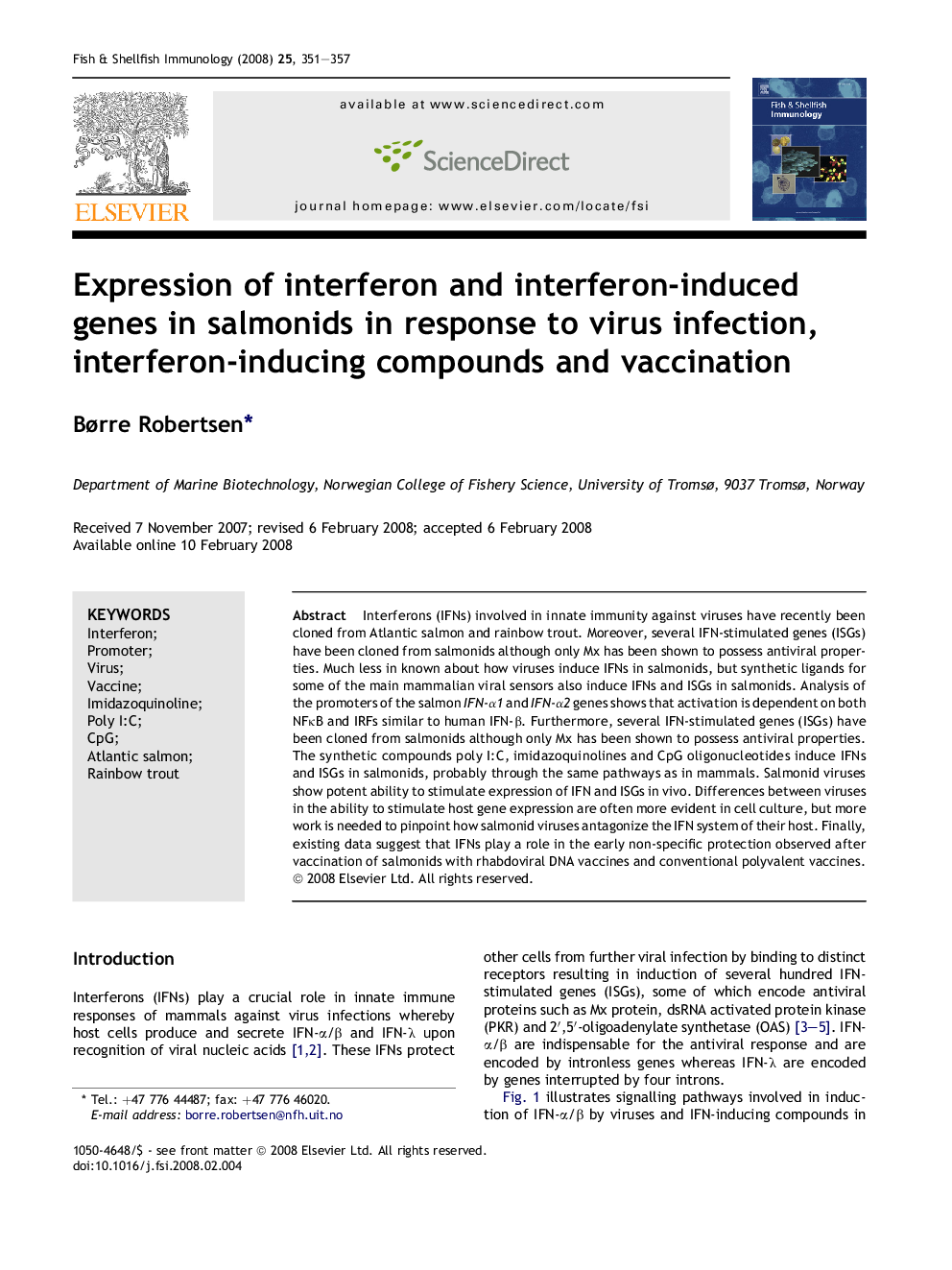| Article ID | Journal | Published Year | Pages | File Type |
|---|---|---|---|---|
| 2433328 | Fish & Shellfish Immunology | 2008 | 7 Pages |
Interferons (IFNs) involved in innate immunity against viruses have recently been cloned from Atlantic salmon and rainbow trout. Moreover, several IFN-stimulated genes (ISGs) have been cloned from salmonids although only Mx has been shown to possess antiviral properties. Much less in known about how viruses induce IFNs in salmonids, but synthetic ligands for some of the main mammalian viral sensors also induce IFNs and ISGs in salmonids. Analysis of the promoters of the salmon IFN-α1 and IFN-α2 genes shows that activation is dependent on both NFκB and IRFs similar to human IFN-β. Furthermore, several IFN-stimulated genes (ISGs) have been cloned from salmonids although only Mx has been shown to possess antiviral properties. The synthetic compounds poly I:C, imidazoquinolines and CpG oligonucleotides induce IFNs and ISGs in salmonids, probably through the same pathways as in mammals. Salmonid viruses show potent ability to stimulate expression of IFN and ISGs in vivo. Differences between viruses in the ability to stimulate host gene expression are often more evident in cell culture, but more work is needed to pinpoint how salmonid viruses antagonize the IFN system of their host. Finally, existing data suggest that IFNs play a role in the early non-specific protection observed after vaccination of salmonids with rhabdoviral DNA vaccines and conventional polyvalent vaccines.
